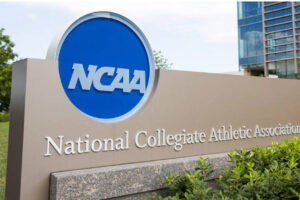
Last July 1 marked the first day that NCAA student-athletes could profit off their name, images and likeness.
For many collegiate athletes, this was an opportunity to earn money legally while still competing as an amateur.
Despite the opportunity to make substantial profits, many athletes at Historically Black Colleges and Universities have found striking a deal hard to come by.
This raises the question:
Are NIL deals offered equally to HBCU athletes compared to student-athletes who compete for well-known universities?
Ethan Jenkins, a baseball player for Florida A&M University, weighed in on the current predicament happening across the world of collegiate athletics.
“At the end of the day, it comes down to resources provided by the university,” he said. “Bigger schools who play on TV will be more known on a national scale. The more eyes that are on our university will naturally lead into smaller schools’ athletes receiving NIL deals from state and local companies in the future.”
Local institutions Florida State University and University of Florida offer streaming services to their fans via university broadcasts. Additionally, these schools hold TV contracts with their respective Power Five ACC and SEC networks for all sports to be broadcast nationally on ESPN.
Some HBCU athletes have profited immensely from NIL deals. Sheduer Sanders, a quarterback at Jackson State and son of Pro Football Hall of Famer Deion Sanders who is also Jackson State’s head coach, signed an NIL deal with Gatorade in January.
Sanders is one of the few HBCU athletes who have profited substantially off his name, image and likeness. Large school athletes such as South Carolina quarterback Spencer Rattler and basketball player Paige Bueckers have signed lucrative deals worth more than $1 million.
Former HBCU athlete Octavian Moyer offered a solution to opportunities at an HBCU relative to another university.
“HBCUs need more of a social media presence. Most companies and people, in general, get their information on social media. With a more aggressive approach from a social media standpoint, people are more willing to make deals with us,” he said.
Grambling State University’s football team is the lone HBCU program to secure a NIL deal for each player on the roster.
FAMU athletics signed a 5-year departmental-wide deal with the social media app INFLCR. The platform is designed to elevate a student-athlete’s personal brand by providing networking opportunities and resources.
FAMU is the first Southwestern Athletic Conference school to have a deal with INFLCR and the second HBCU to strike a deal with the app.